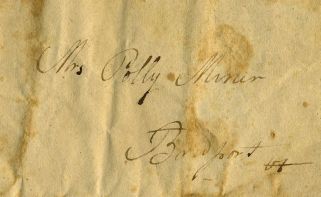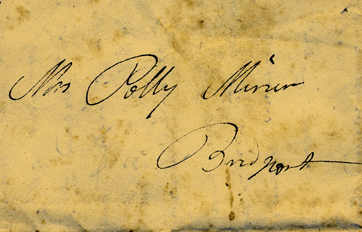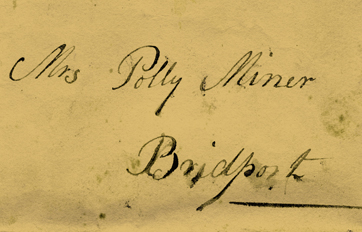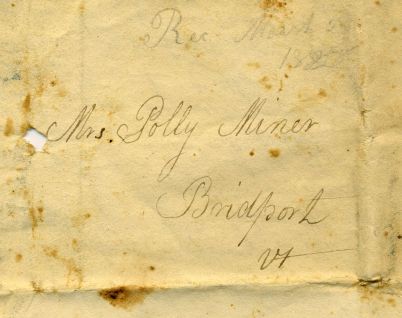|
Introduction to Women's Life: Early 1800's
New England
Throughout the early 1800’s, America experienced
increases in economic growth, agricultural productivity, urbanization,
socioeconomic inequality, and education quality. Women were denied
access to political power, voting rights, quality education, and
church positions. They experienced severe economical disadvantages
and were subordinate to their husbands. The cult of true womanhood
emerged, in which women were constrained mostly to domestic activities
and identities. Women’s work focused on the needs of others,
especially their children and men.
A shift in women’s writing appears around 1820 which reveals
that women began measuring their happiness not only by the state
of their family, but also on the stability and quality of their
extra-familiar friendships. Often, women wrote of missing home and
their friends and expressed their desire for connection with other
females. It seems that the omnipresent distinctions between men
and women during this time period served to make each sex uncomfortable
around each other. This phenomenon was probably very influential
in the formation of and value for the bonds of womanhood forged
and formed throughout the 1800’s.
One Woman’s Story: Betsy Miner
Betsy Miner married Mr. Hayward, and moved from
Bridport, Vermont to Whiting, Vermont. She worked as a housewife
and tutored a few young girls. From 1820 to 1830 she wrote many
letters to her mother, Polly Miner, about a variety of topics. Included
in these letters are expressions of Betsy’s desire for connection
with home and her other female friends, the strain she feels from
always serving her family, and her wishes for more personal time
and relaxation. She constantly dismisses the praise she receives
from others, stating that she does not deserve it. Though she does
complain to her mother about valid health problems and life concerns,
she consistently begs her mother not to worry about her. We have
transcribed a set of her letters that best exemplify the struggles
of a New England woman in the 1800’s. Her letters illustrate
the nature of the cult of true womanhood and the pressures of domestic
life. |

|
June 22nd, 1820
“Mrs Pratt says I “go about doing good” but such
a compliment I by no means deserve, for all the good I do here is
not worth mentioning – I (guess) I shall stay at (Dcr Scarts)
to night, for I feel at present unable to walk farther; but I hope
after I get sleep enough I get will feel better, so do not give
yourself any uneasiness about me, for it is only next day after
tomorrow and I hope to see home once more”
“I wish to morrow was a day of rest for me but no. I must
(have) a life of authority as well as usefulness - Do not feel any
ways concerned I am not worth a thought”
|
April 18th, 1824
“When I
take up the pen to address you, my dear Mother, every feeling in my
heart is opened, love for the tenderness you always bestowed upon
me and gratitude for the care you took of my in my infant years –
And the (precepts) you have instilled into my memory, and fortified
by your own example, never will wear out until the lamp of life ceases
to burn – I know lately I have been an unremitted source of
anxiety to you; and still must be as long as I am removed from under
your parental eye but the many concerns which affected me in Bridport
I endeavored to leave with the town – It was a hard journey
over here for me.”
“I imagine my complaint arose from
the difference of the water, but the doctor thought otherwise and
he said “If I did not wean one of my children, immediately within
two months the whole of my story would be told” he said further
that he did not mean to tell me a frightful story no administer medicine
but if I would let hard work alone and rest a little while from my
jaunt down here, and wean Nancy which he expected over a number of
times, there might be some hope of me enjoying good health. In conformity
to this advice I have not let Nancy suck since. Do not let this information
increase your anxiety for my welfare.”
|
 |
 |
June 22nd, 1824
“–
I am in such haste I know not what to write, I have so much to think
of, and so much to do, that when night comes sleep is sweet and morning
comes too soon. However hard work is nothing, to the pains of the
mind, and afflictions of the body inferior to a “heart pierced
through with many sorrows” therefore I aught to be thankful
for my mind is free. I do not like to be just so situated as I am
here, this way of life never agreed with my nature – All I want
is a neat comfortable retired situation where I can sit down I peace
and “none to make me afraid””. |
July 6th 1824
"My health
has not been good since Friday, that old complaint in my stomach I
fear will not be soon removed. My work is little too hard for me sometimes
and I tire out very easy – bust forgive me if I cause you any
anxiety. I see someone from Bridport ever week. I hear you are all
well, but still I should be glad to hear (chrealty?) from you –
general inquiries does not satisyfy my mind – "
|
 |
 |
Aug 8th 1824
"I feel sometimes
like that man who said 'Ten thousand all around me poor soul all alone'
I have no reason to complain with regard to to society here."
|
Dec 1824
"Mr (Bisbee) wants
us to keep the tavern another year but I cannot think of it without
horror. I have no desire to settle here. I have had but little peace
since we sold out farm in Bridport. My views never went beyond the
hills that surrounded our dwelling. I was thin, contented, but oh
my dear Mother we all have to share in the changes of fortune...There
is nothing this town contains, (but my family) that my heart is any
ways attached to." |
 |
 |
March 20th, 1830
“I should
be glad to have Sally stay with me whilst Mr. H goes to New York which
probably will be in April.”
“I want to hear from
all my Bridport friends every individual”
“It does
not seem here like the home I left – I hope in time to get reconciled.
I left too much behind me that I loved – My children are a greater
care here than they were there.”
|
|
 to
to 






